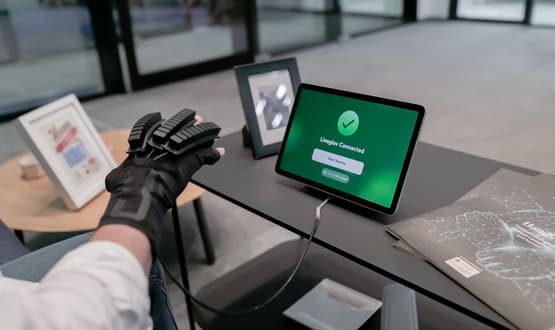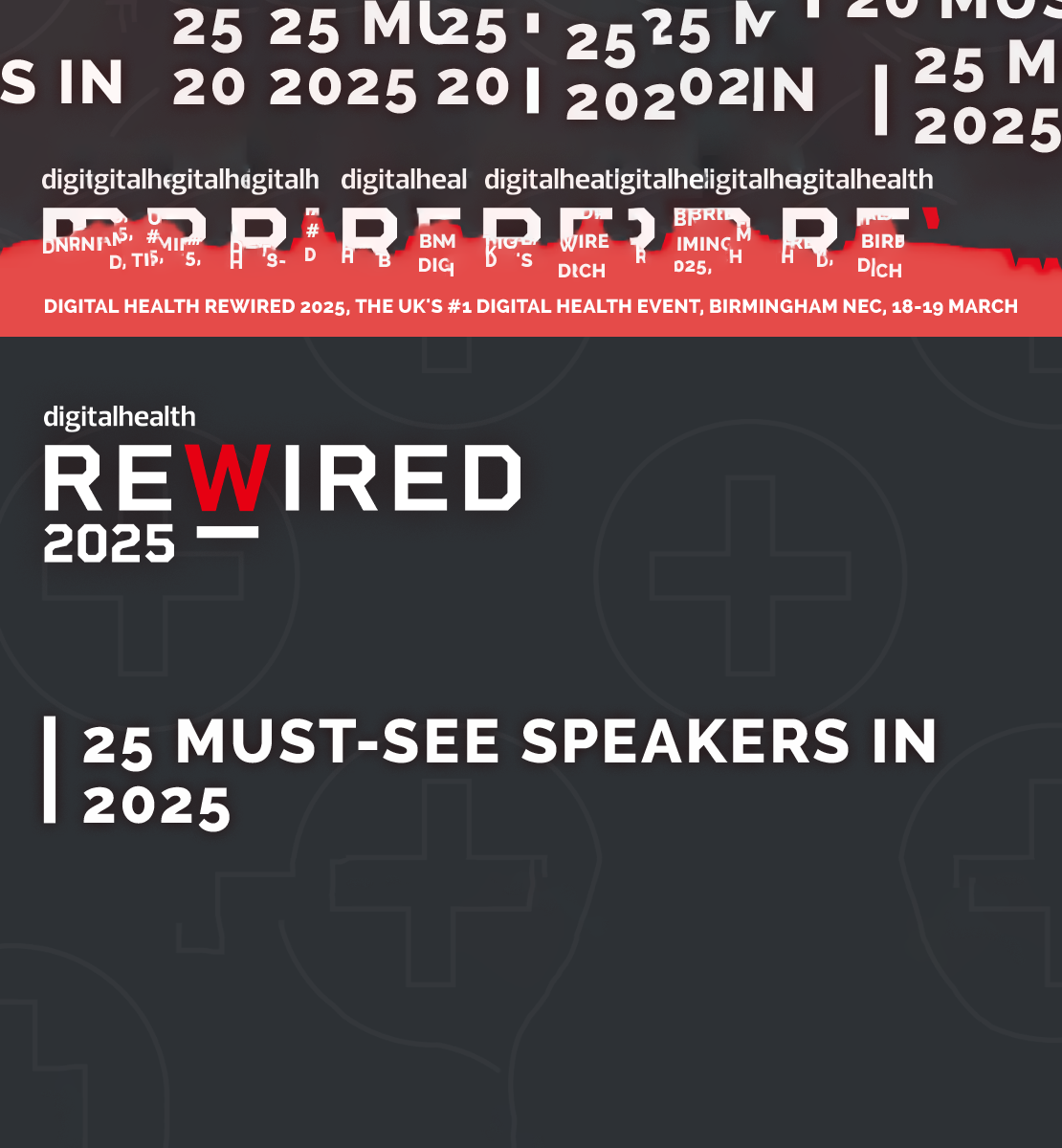Bioliberty receives funding to develop robotic glove for stroke rehabilitation
- 6 December 2023

Medtech start-up Bioliberty has secured almost half a million pounds of funding from Innovate UK to accelerate to market a soft robotic glove that helps rehabilitate stroke patients.
The robotic glove works by assisting a patient to open and close their hand, an action which can be severely limited following a stroke. Developed in collaboration with physiotherapists, occupational therapists and clinicians, the glove has built-in sensors that allows it to vary level of resistance to tailor rehabilitation exercises to the user.
The £435,000 of funding from the Biomedical Catalyst, Innovate UK’s flagship grant funding mechanism designed to transform innovative ideas into commercially viable businesses, will go towards developing the machine learning and data collection elements of the product.
Speaking ahead of the UK Stroke Forum taking place this week, Bioliberty co-founder Conan Bradley said: “Bioliberty is on the verge of a revolutionary leap in rehabilitation technology.
“Our upcoming trials for our soft robotic glove are set to ignite the United States, with top rehab clinics eagerly in discussions. With this newfound funding, we’re poised to accelerate trials and expedite our market launch. But we’re not stopping at the US; the UK beckons, with a significant demand for innovative rehabilitation solutions amidst the latest NICE guidelines.
“Having access to the National Robotarium’s state-of-the-art office and lab facilities, including its ecosystem of collaborators, industry experts and academic teams, has been vital in helping us to develop our product.”
Bioliberty is a tenant at the National Robotarium, a pioneering facility which works collaboratively with partners around the globe to define, develop and resolve industry challenges through the application of robotics and AI. It benefits from the National Robotarium’s incubation facilities, state-of-the-art labs, and engineering expertise.
The National Robotarium is part of the Data-Driven Innovation initiative, supported by £21 million from the UK Government and £1.4 million from the Scottish Government. The initiative aims to turn Edinburgh into the data capital of Europe and is part of the wider £1.3 billion Edinburgh and South-East Scotland City Region Deal.
Lisa Farrell, business development manager at the National Robotarium, said: “With an ageing population, demand for robotic solutions to assist in the rehabilitation of those who’ve experienced a stroke will be in great demand.
“Stroke is the leading cause of disability worldwide1, so Bioliberty’s product is addressing a global need, which is one of the core missions of the National Robotarium.
“The National Robotarium’s mission is to develop robotic and AI solutions which make people safer, healthier and more productive and working with tenant companies, we want to provide a catalyst for entrepreneurship, and deliver economic and societal benefits.”
This Innovate UK funding comes after Bioliberty initially secured £2.2 million back in April following a funding round led by Archangels, with participation from Eos Advisory, Old College Capital and Hanna Capital SEZC.





